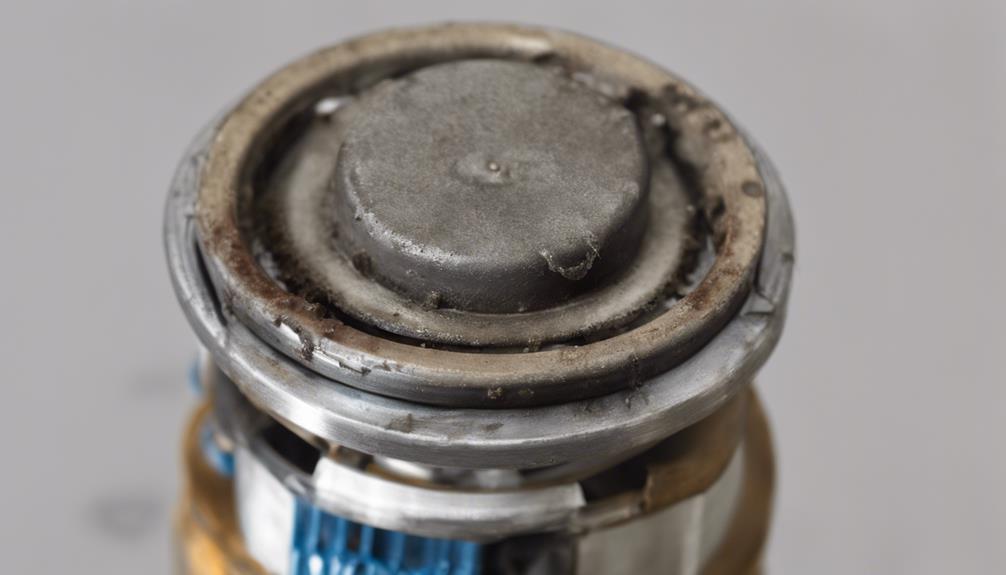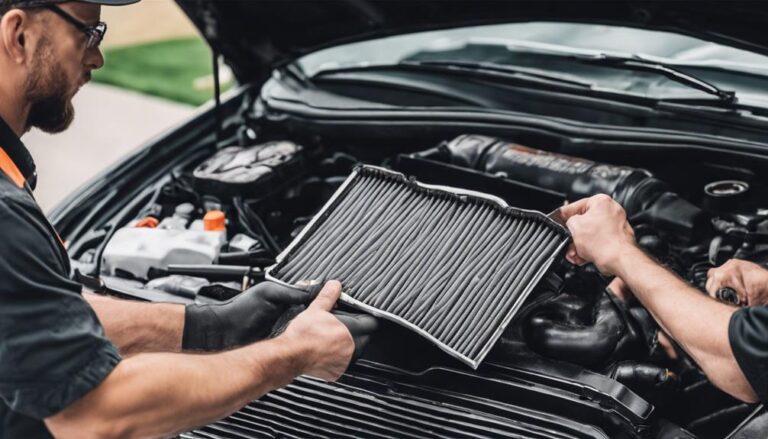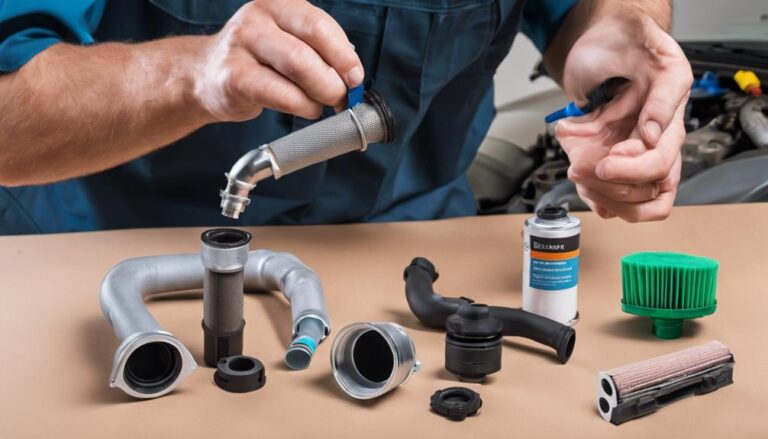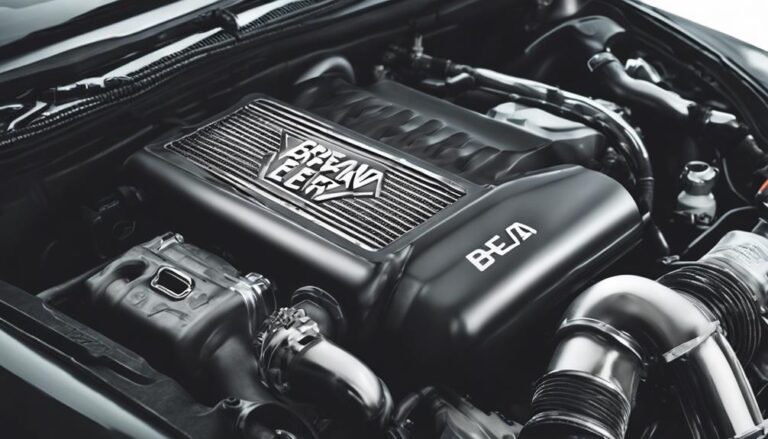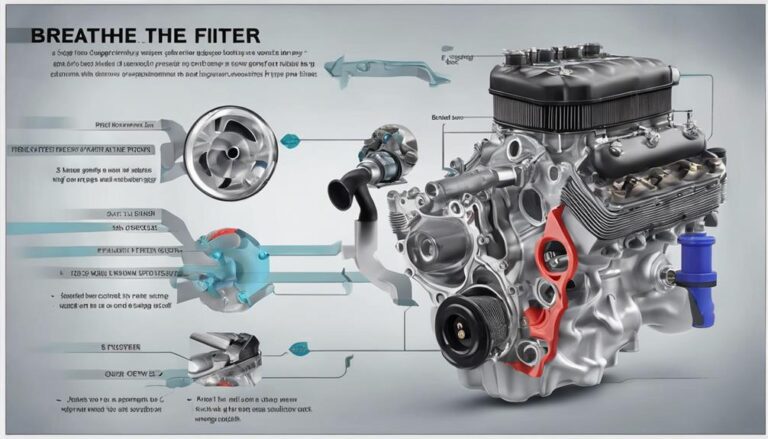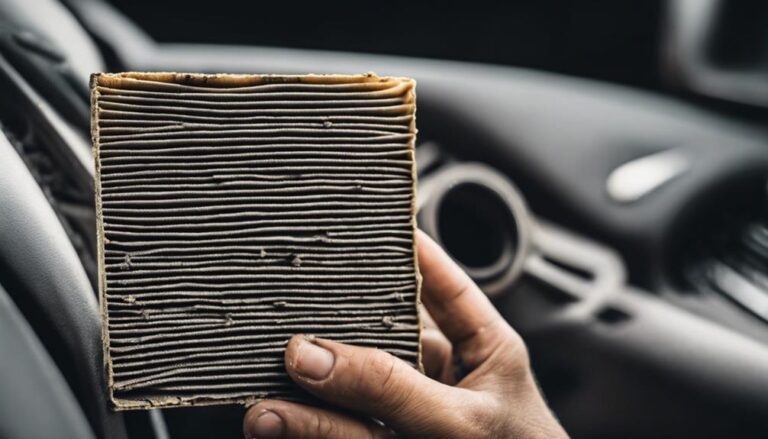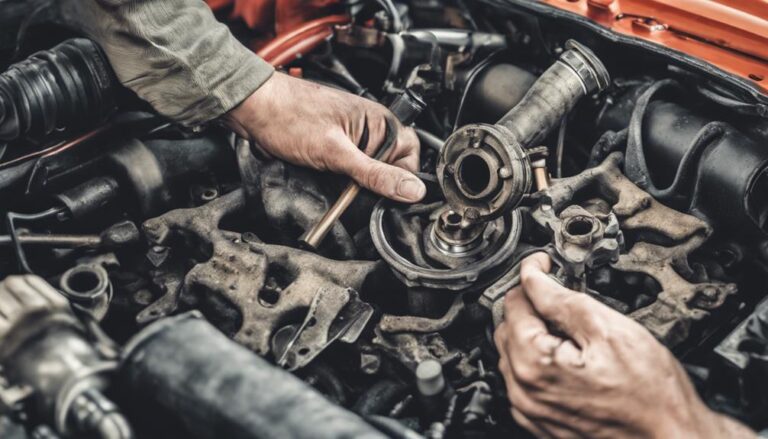What Happens When PCV Valve Is Dirty?
When your PCV valve is dirty, it can lead to a range of issues that might affect your vehicle's performance in subtle ways. You might notice symptoms like reduced engine power or increased oil consumption that could hint at a critical problem.
But what exactly happens when this vital component becomes clogged or malfunctioning? Stay tuned to unravel the possible consequences and learn how a simple maintenance task can prevent major headaches down the road.
Key Takeaways
- Reduced engine performance and airflow restrictions result from a dirty PCV valve.
- Increased oil consumption and blueish smoke due to failed blow-by gas removal.
- Poor fuel economy and engine hesitation stem from clogged PCV valves.
- Engine misfires, decreased fuel efficiency, and potential damage are risks of a dirty PCV valve.
Reduced Engine Performance

When the PCV valve is dirty, your engine's performance is greatly reduced. This happens because a dirty PCV valve can lead to airflow restrictions within the engine. The Positive Crankcase Ventilation (PCV) system is designed to regulate and remove fumes from the engine crankcase, but when the valve is clogged with dirt and debris, it can disrupt this process. As a result, the airflow within the engine becomes compromised, affecting the overall combustion process.
Airflow restrictions caused by a dirty PCV valve can lead to combustion issues within the engine. Proper airflow is essential for the combustion process to occur efficiently. When the PCV valve is dirty, it disrupts the airflow balance, potentially causing incomplete combustion of fuel and air mixture. This can result in decreased engine performance, reduced fuel efficiency, and even lead to issues like engine misfires or rough idling.
To maintain excellent engine performance, it's essential to regularly check and replace the PCV valve when needed. By maintaining a clean PCV valve, you can avoid airflow restrictions and combustion issues, allowing your engine to perform at its best.
Increased Oil Consumption
A dirty PCV valve not only impacts engine performance but can also result in increased oil consumption due to improper ventilation and circulation within the engine. When the PCV valve is clogged with sludge or debris, it fails to adequately remove blow-by gases from the crankcase. This build-up of pressure can force oil past the piston rings and valve seals, leading to increased oil consumption. To prevent this issue, regular maintenance of the PCV system is essential. Here are some maintenance tips and symptoms to watch for:
| Maintenance Tips | Symptoms to Watch For | Potential Solutions |
|---|---|---|
| Replace PCV valve every 30,000 miles | Excessive oil consumption | Check PCV valve for blockages |
| Guarantee hoses are clean and free from clogs | Blueish smoke from the exhaust | Clean or replace PCV valve if needed |
| Inspect PCV system during routine service | Engine misfires | Address any underlying engine issues |
Poor Fuel Economy
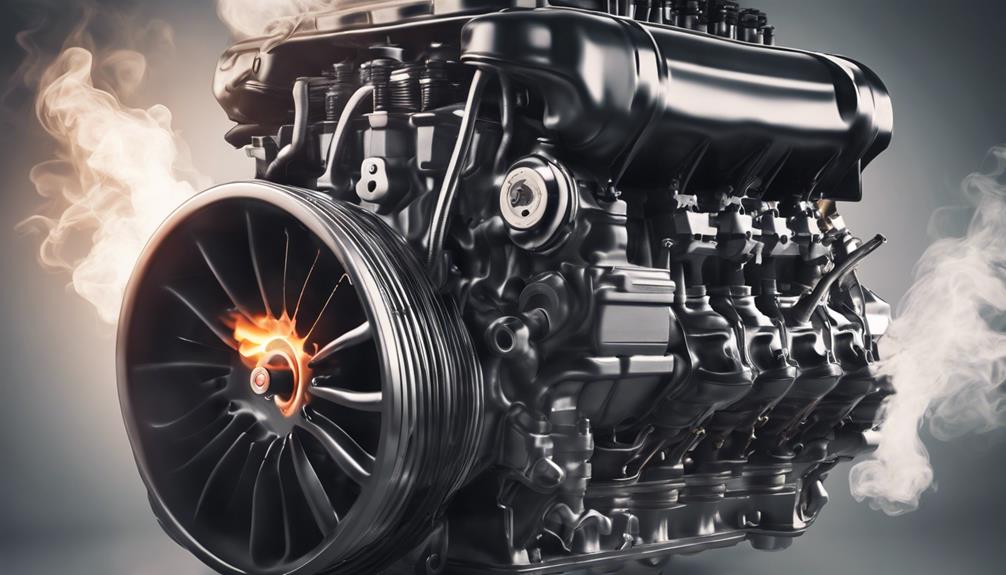
To address poor fuel economy related to a dirty PCV valve, it's important to understand how this component impacts the engine's efficiency. When the PCV valve is dirty, it can lead to decreased acceleration and engine hesitation, affecting your vehicle's overall performance. Here's how a dirty PCV valve can contribute to poor fuel economy:
- Increased Engine Load: A clogged PCV valve causes the engine to work harder, consuming more fuel to maintain performance.
- Incomplete Combustion: Engine efficiency decreases due to improper air-fuel mixture, resulting in higher fuel consumption.
- Reduced Airflow: A dirty PCV valve restricts airflow, leading to incomplete combustion and decreased fuel efficiency.
- Ignition Timing Issues: With a dirty PCV valve, the engine may experience misfires, impacting fuel economy.
- Excessive Fuel Vapor: A contaminated PCV valve can cause the engine to run rich, burning more fuel than necessary, further reducing fuel efficiency.
Regular maintenance and timely PCV valve replacements can help improve fuel economy and prevent such issues.
Engine Misfires
Engine misfires can greatly impact your vehicle's performance and fuel efficiency. When an engine misfires, it means that the air-fuel mixture in one or more of the cylinders fails to ignite properly. This can lead to rough idling, decreased power, and even potential damage to the catalytic converter over time.
Ignition timing plays a vital role in ensuring that the air-fuel mixture ignites at the right moment during the engine's four-stroke cycle. If the ignition timing is off, it can cause misfires. Additionally, worn or fouled spark plugs can also contribute to misfires. Spark plugs are responsible for creating the spark that ignites the air-fuel mixture in the combustion chamber. When spark plugs are dirty or worn out, they may fail to ignite the mixture consistently, resulting in misfires.
Regular maintenance, including checking and replacing spark plugs as needed, and ensuring proper ignition timing, can help prevent engine misfires and keep your vehicle running smoothly.
Potential Damage to Engine
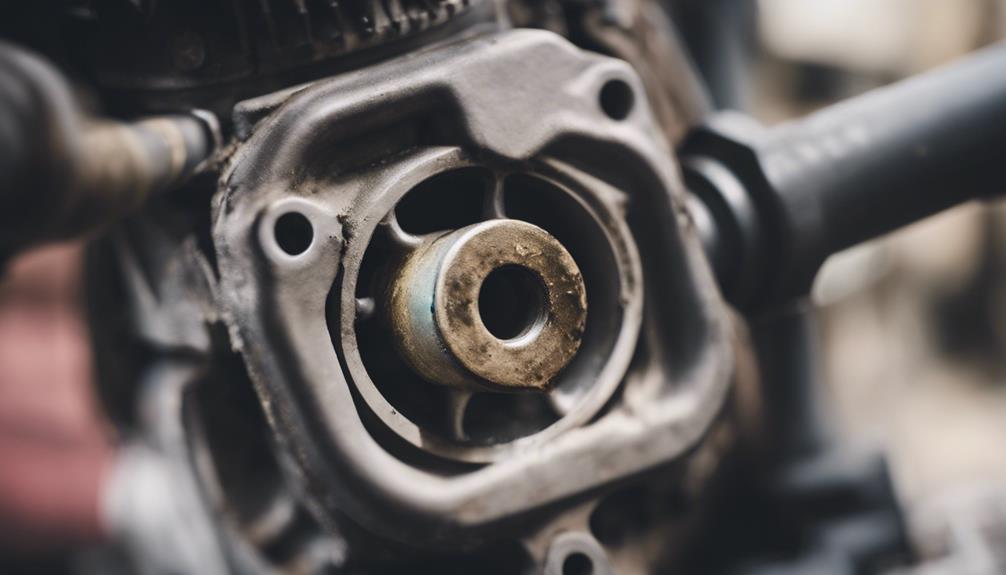
When experiencing engine misfires, it's important to address the issue promptly to prevent potential damage to the internal components of your vehicle. Failure to rectify this problem can lead to severe consequences for your engine, resulting in issues such as engine wear and decreased longevity. Here's why this is critical:
- Increased Friction: Dirty PCV valves can cause improper ventilation, leading to increased friction between moving parts.
- Oil Contamination: A clogged PCV valve can cause oil contamination in the engine, which can accelerate wear and tear on crucial components.
- Poor Lubrication: Reduced airflow due to a dirty PCV valve can hinder proper lubrication of engine parts, causing increased friction and wear.
- Heat Build-Up: Inadequate ventilation can lead to heat build-up in the engine, potentially damaging sensitive components.
- Corrosion Risk: Contaminants trapped in the engine can increase the risk of corrosion, further compromising the engine's longevity.
Addressing a dirty PCV valve promptly is essential to maintain the health and performance of your engine.
Frequently Asked Questions
How Often Should the PCV Valve Be Checked and Replaced?
You should regularly inspect and replace the PCV valve according to your maintenance schedule. Signs of a dirty valve include decreased engine performance and increased oil consumption. Consult your owner's manual for specific replacement intervals.
Can a Dirty PCV Valve Cause an Increase in Emissions Output?
When your PCV valve is dirty, emissions control can be compromised, leading to increased air pollution levels. Regular maintenance is important to guarantee performance and reduce environmental impact.
Will a Dirty PCV Valve Trigger a Check Engine Light?
When your PCV valve isn't properly maintained, its performance can affect engine efficiency and emissions. A dirty PCV valve may not always trigger a check engine light, but regular maintenance can prevent issues.
Can a Clogged PCV Valve Affect the Overall Lifespan of the Engine?
When a clogged PCV valve impedes engine performance, it can shorten the engine's lifespan. Regular maintenance, including PCV valve checks, is crucial for prevention. Neglecting this can lead to decreased longevity and efficiency of your engine.
Are There Any DIY Methods to Clean a Dirty PCV Valve Before Replacing It?
To clean a dirty PCV valve yourself, use a solvent and a brush. While DIY methods can be effective for minor buildup, professional cleaning guarantees thorough removal of deposits that could impact engine lifespan.
Conclusion
To summarize, a dirty PCV valve can lead to a variety of issues such as reduced engine performance, increased oil consumption, poor fuel economy, engine misfires, and potential damage to the engine.
Symbolically, the PCV valve can be seen as the heart of the engine, regulating the flow of air and oil to keep everything running smoothly.
It's important to regularly check and maintain the PCV valve to guarantee the overall health and performance of the engine.

